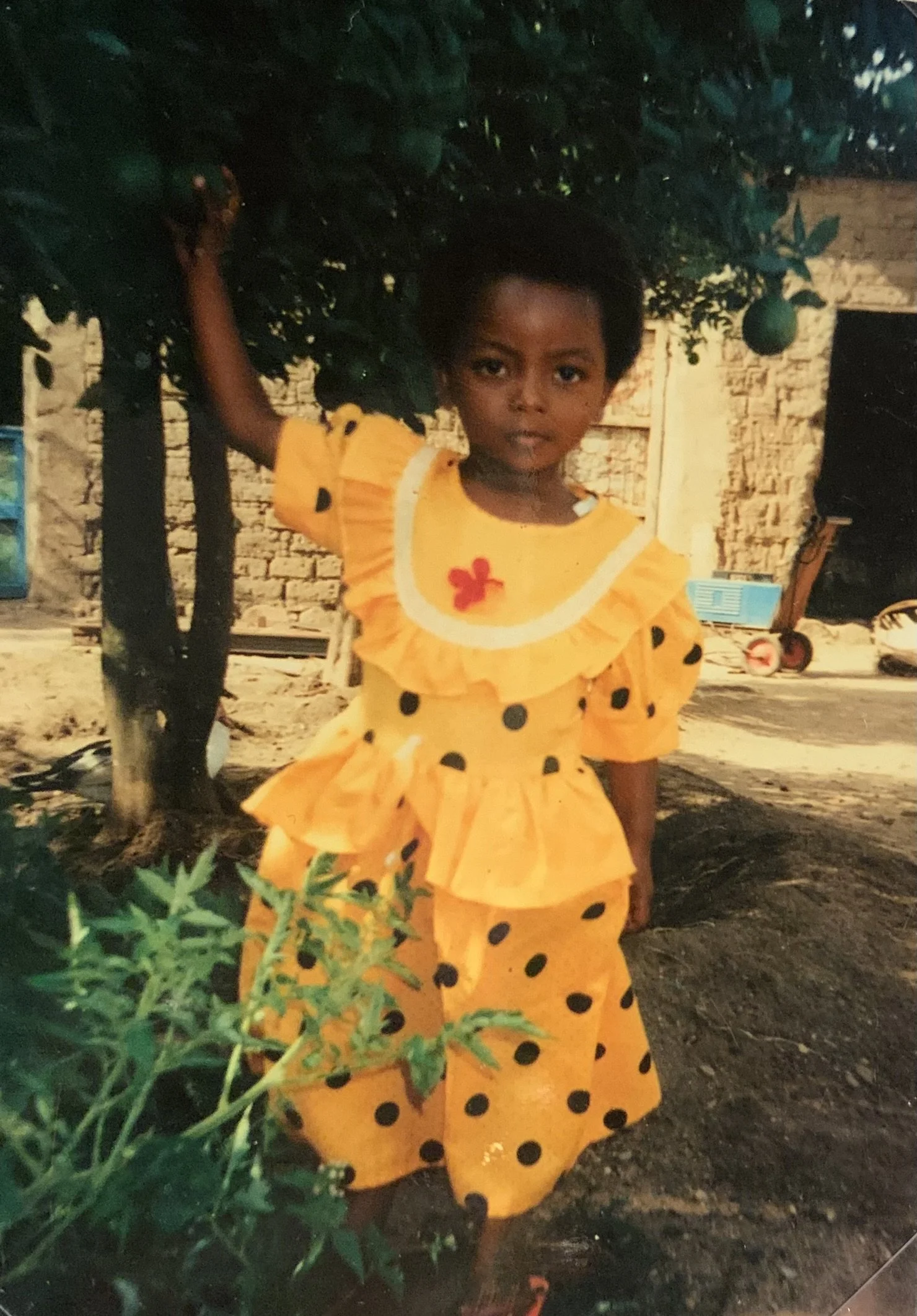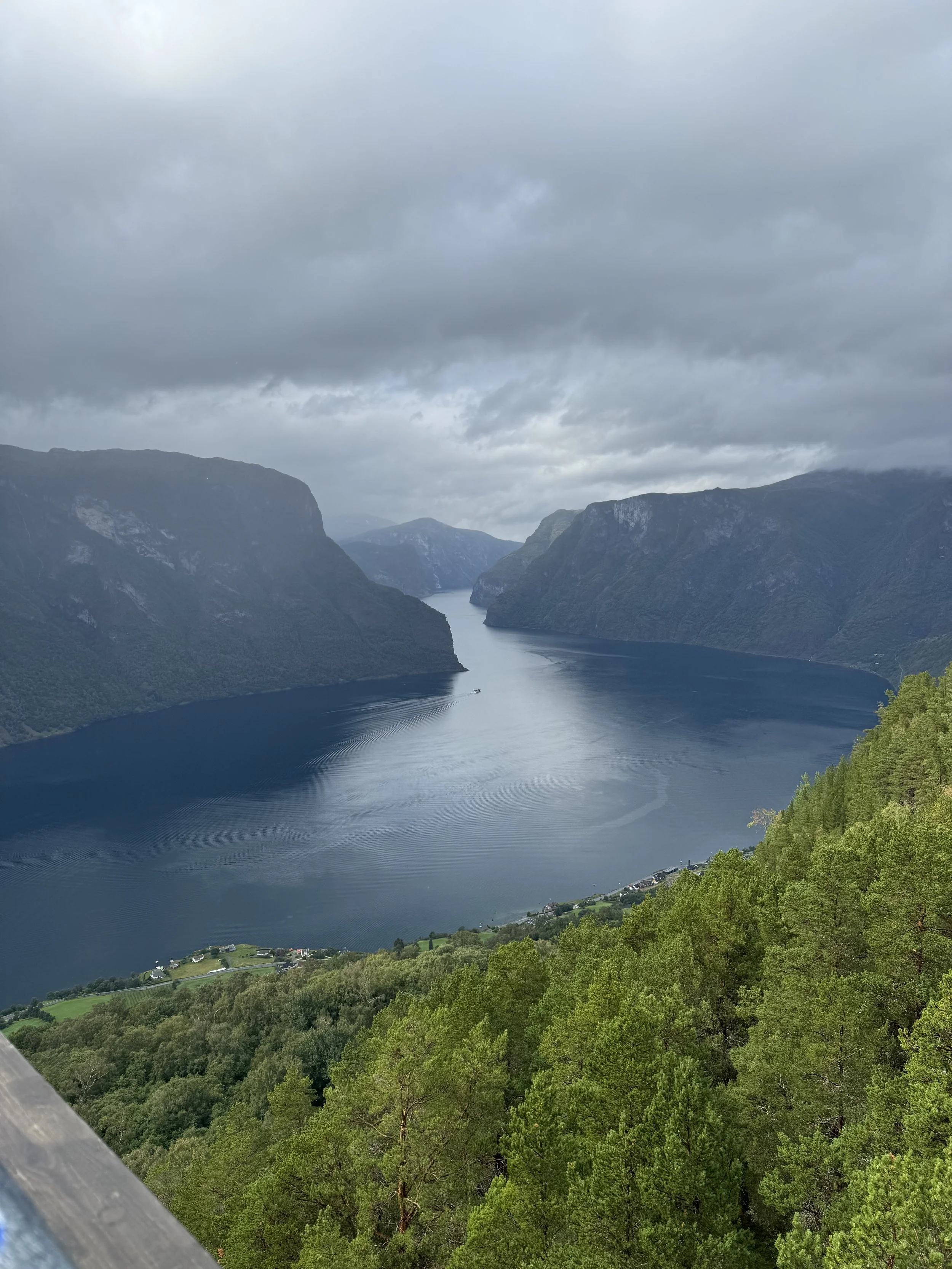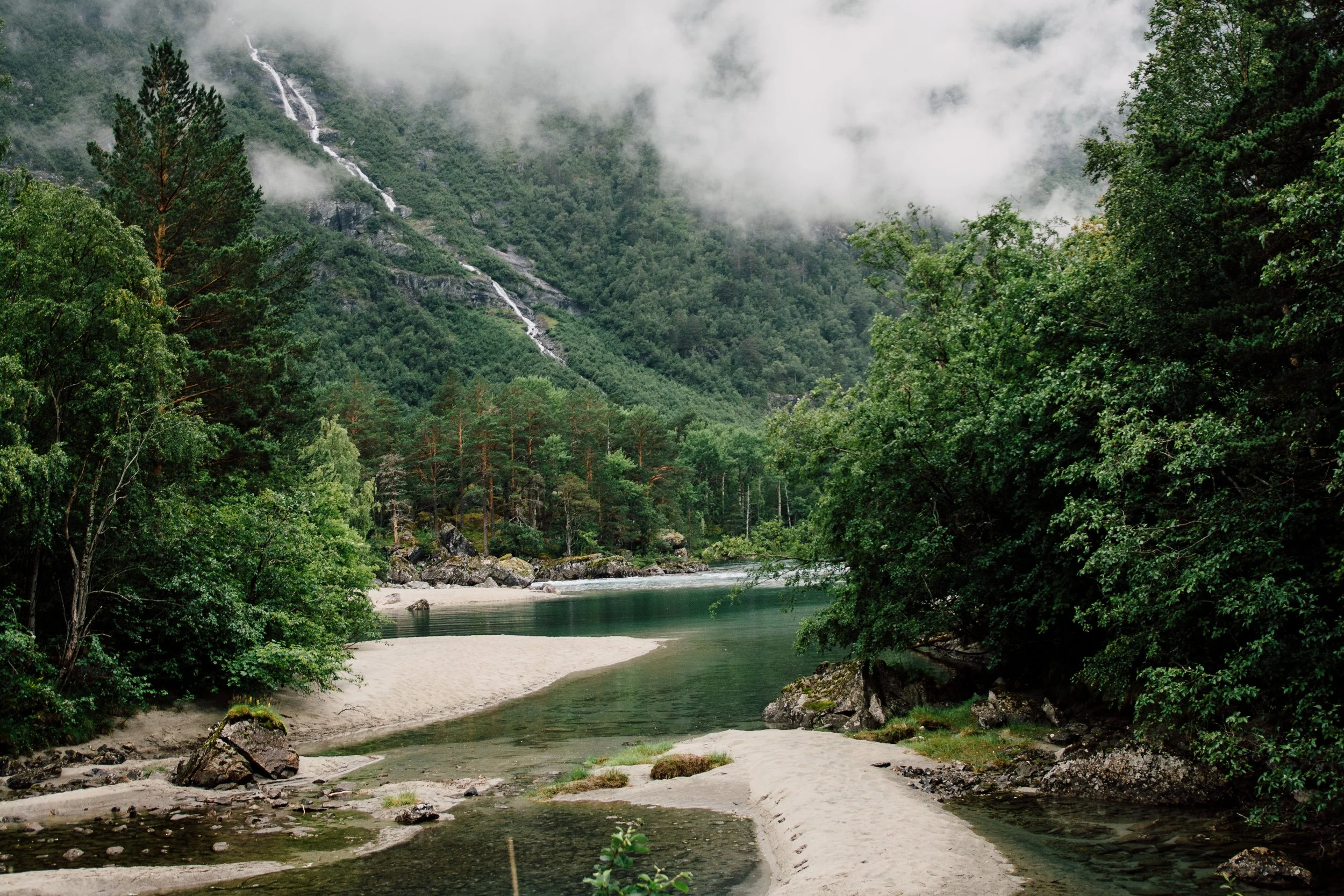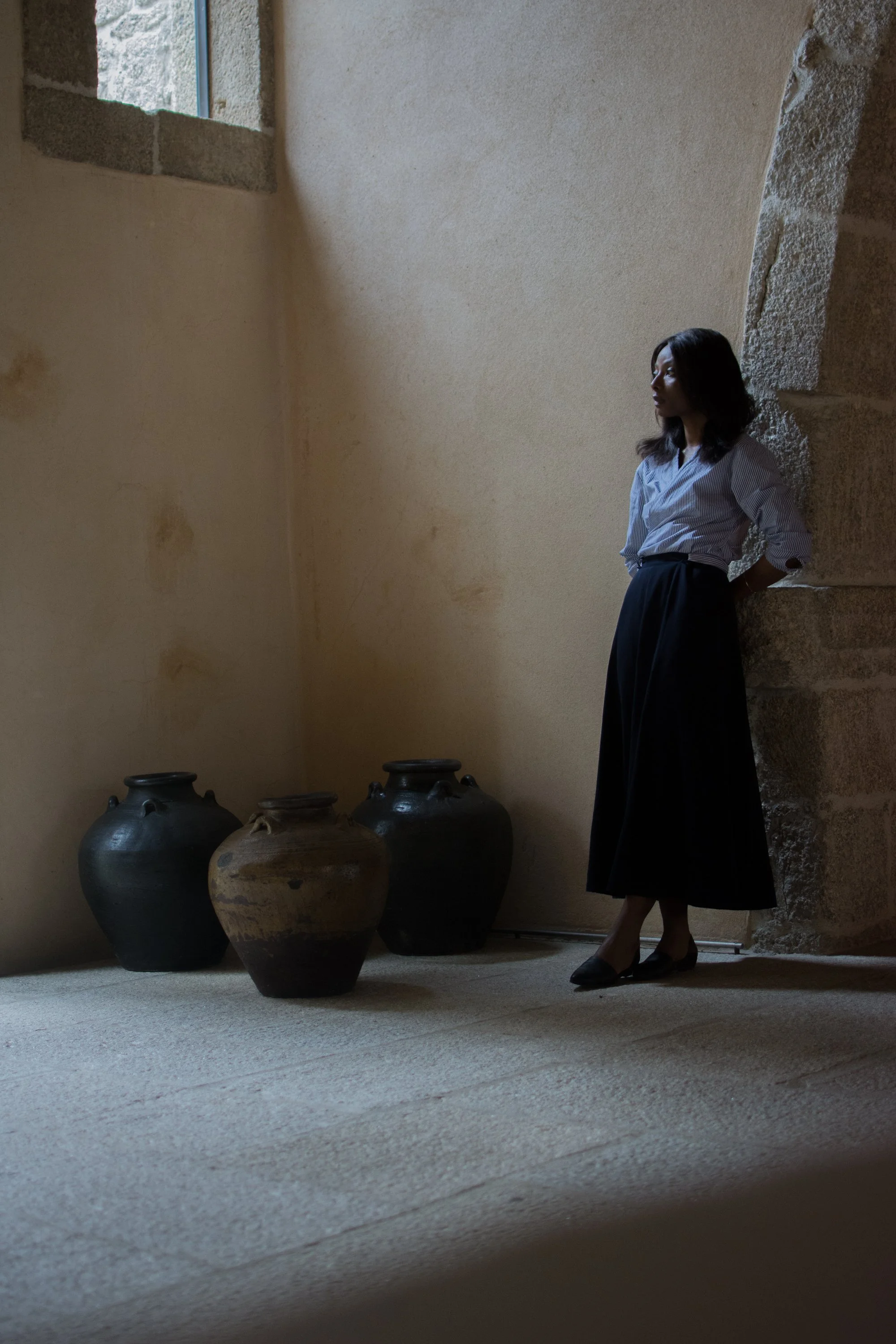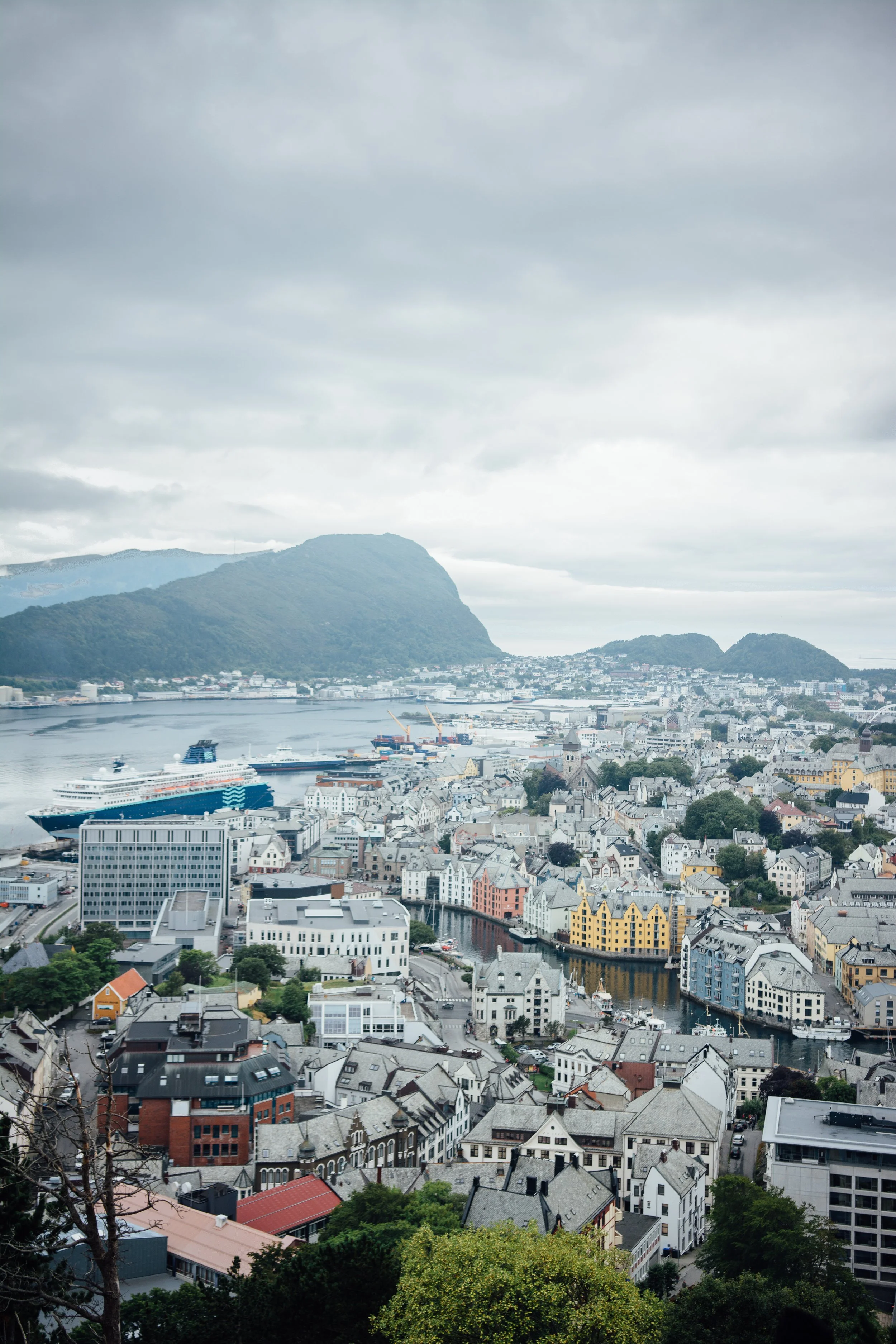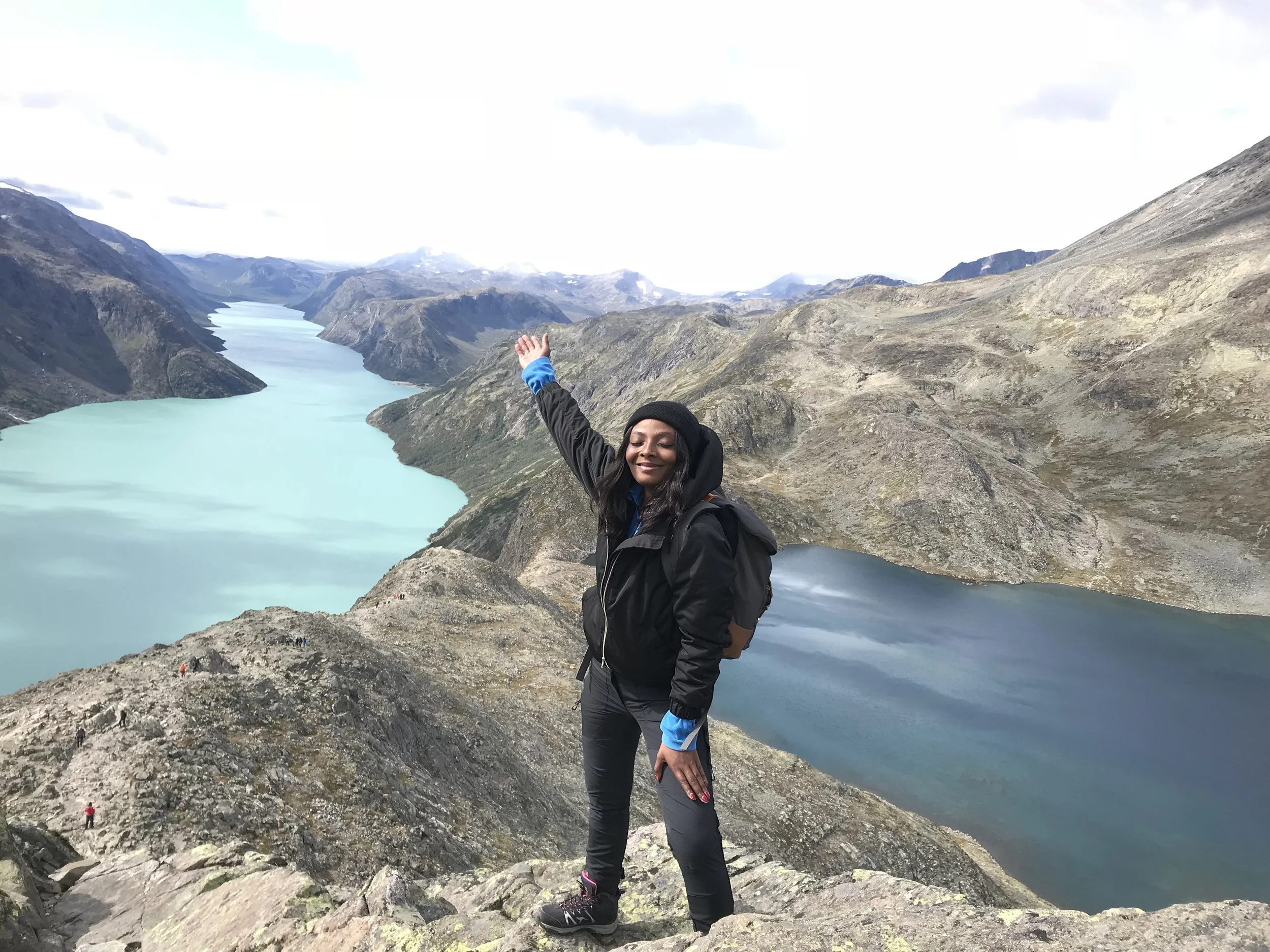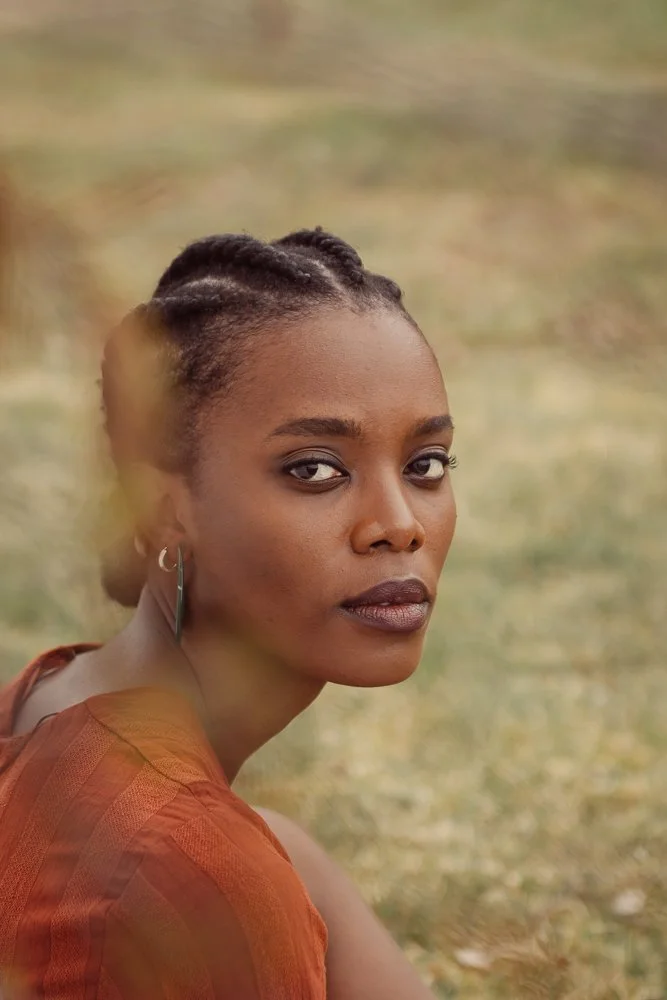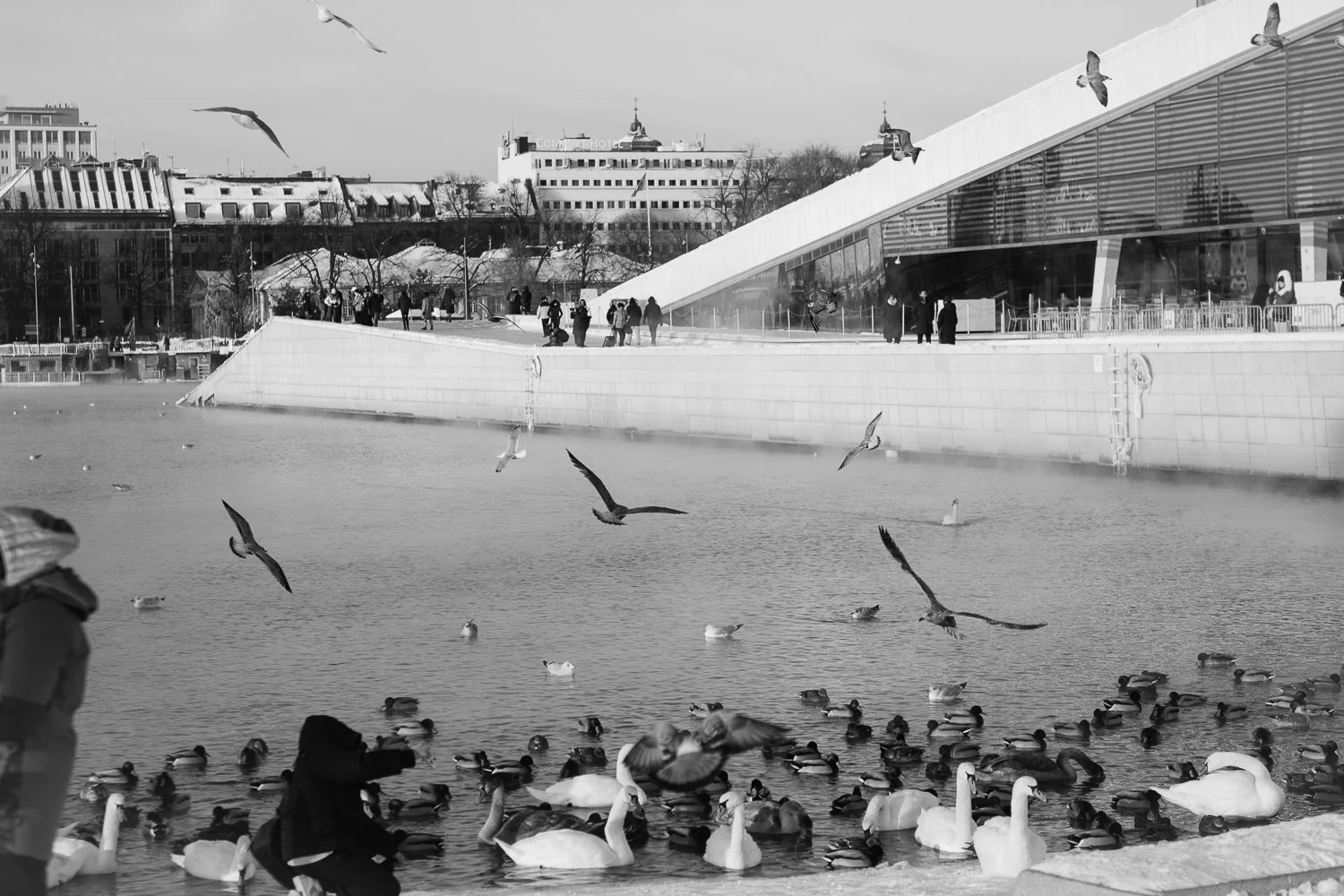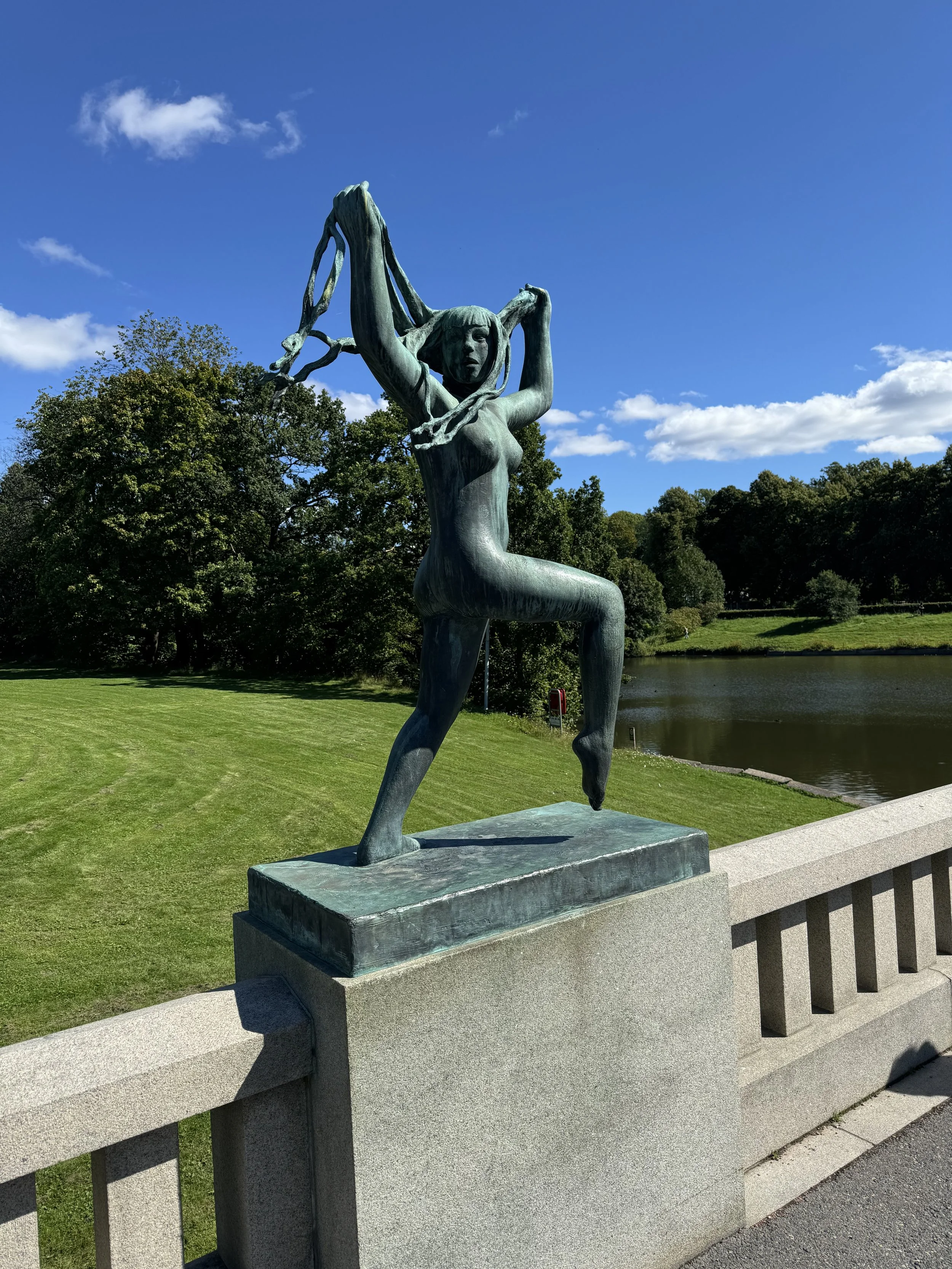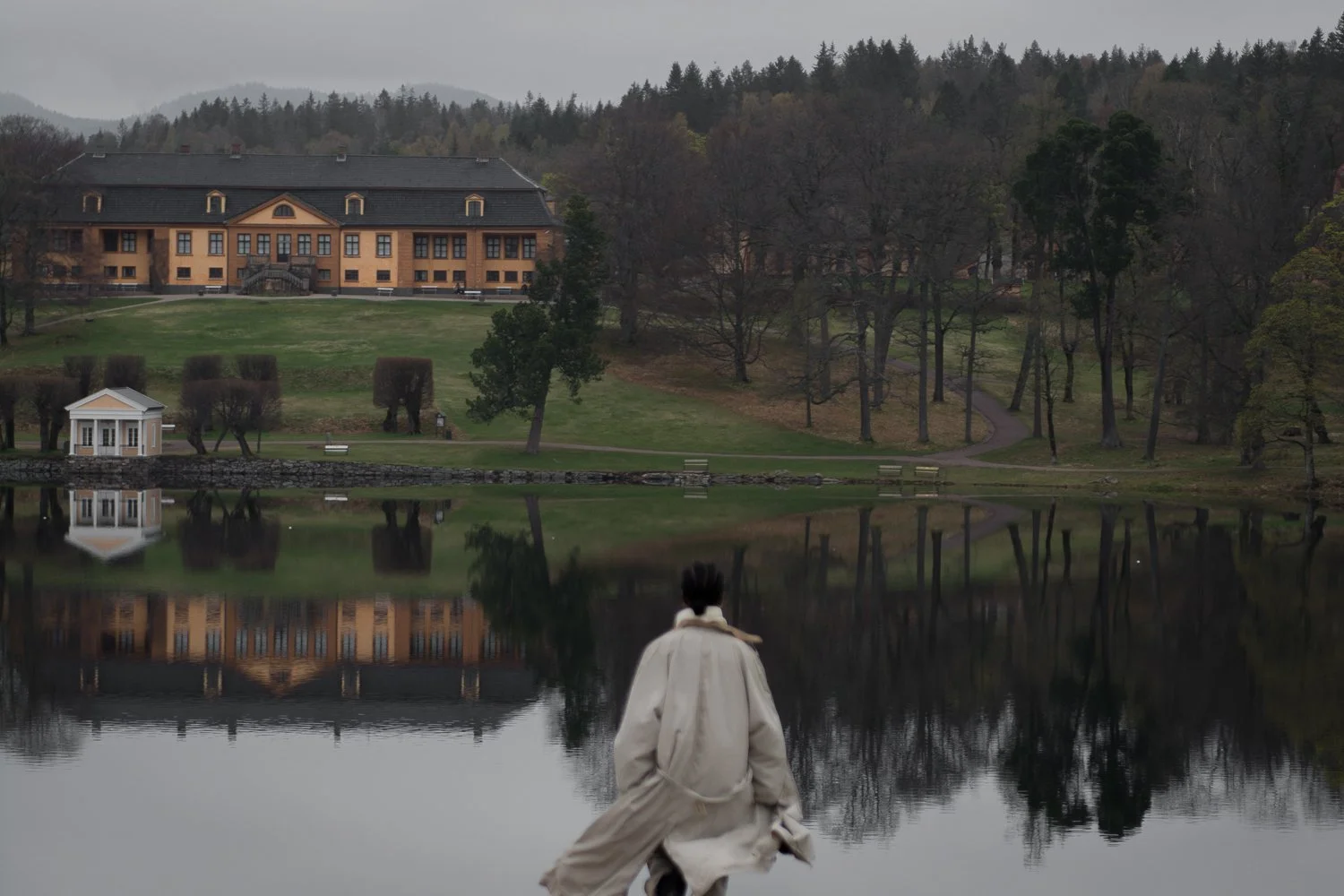Living and Thriving in Norway: An Interview with Matunda Bigirimana
Matunda Bigirimana
When I wrote my reflections on Norway in the last edition of the Movement is Life Studio Newsletter, I had a nagging interest in interviewing someone who actually lived and worked in Norway. As we all know, travel can only provide a superficial glimpse of a country.
Matunda Bigirimana came to mind as I pondered more about Norway. I had subscribed to her Substack a few weeks before traveling to Norway and noticed her love for nature, photography, and books. She also seemed to appreciate her Norwegian environment. So, I reached out to her with my curious questions. She was kind enough to respond, and I am grateful for her time.
Here’s my Q&A with Matunda. She gives insights to the culture, nature, career and her experiences as a Black woman who has lived in Norway for 21 years. I hope it provides you with more insight into Norway, as it did for me.
Tell us a bit about yourself. My name is Matunda Nishobora Bigirimana. I was born in Bujumbura, Burundi, in 1991, just two years before the civil war. My nuclear family—consisting of my father, mother, and three siblings—fled via Congo and Tanzania. We stayed in a refugee camp in Tanzania, where my youngest sister was born right before we relocated to Norway through the UN Refugee Agency in 2003.
4 Year Old Matunda in Congo
I am currently engaged to a Brit, and we live together in Oslo. I have many interests, some of which have turned into careers. I love being creative with my hands, so I enjoy cooking, drawing, taking pictures, and writing. I have a Bachelor of Arts with a major in journalism from Deakin University in Melbourne, Australia. I worked in PR and as a photographer for a magazine before starting work at the Norwegian Broadcasting Corporation, where I predominantly worked in the culture department on the radio channel NRK P2.
After reading my reflections on my summer travel to Norway, what did you agree with and didn’t agree with? Anything you would add to my reflections? I was pleased to see that you came to Norway with a curiosity and was able to see all the beautiful culture that some people miss, perhaps due to language barriers and wrong expectations. I agree on your reflections and want to say that some of the things you mentioned are some of the reasons why I love this country.
What do you enjoy most about living in Norway? The peace and quiet. I think my life before coming to Norway lacked harmony, and this is one of the things I cherish most about this country. Additionally, I appreciate that the people here are easy to trust and genuinely kind. I also value the relative cleanliness of Norway. I sometimes feel a bit spoiled, as I tend to take it for granted until I travel.
Photo taken by Janet of Western Fjords
How has living in Norway changed or influenced you as a person? I have embraced my introverted personality more here than I could in many other cultures. I am a calm person who enjoys spending most of my time alone but also loves being around people. Living here allows me to do just that, as people are usually quite busy and will respect your need for solitude if you make it clear. One challenge is that if you want to be social, you have to work hard to get into a good social circle. However, this is not a big priority for me, as I enjoy one-on-one interactions, small groups, and already have a large family.
Photo taken by Matunda in Norway
In my newsletter, I wrote about how Norwegians interact with nature. How do you think Norwegians view and interact with nature? What are your thoughts about Norwegian weather and how do you navigate it? One of the things I love most about this country is how green and lush it is, with beautiful and dramatic nature that we all enjoy immersing ourselves in. Sundays are the big walking days, but people tend to walk, run, and interact with nature on a daily basis, myself included. In the winter, it can be very challenging to move around, especially where I live, as we tend to get a lot of snow.
Currently, I am finding winter particularly tough due to some health issues. In the past, I would go out and ski or sled with my siblings, but I don’t always have the energy for that now. However, I do enjoy taking walks when the snow is at its prettiest. I am also planning to take a break from the winter by relocating for part of it, as many Norwegians tend to do. The dark winter months can be quite heavy on the mind.
Matunda in Portugal
How would you describe Norwegian culture? What are some unique cultural practices or traditions you encountered? There are a few cultural practices that I will touch on to help describe Norwegian culture.
Democracy, freedom of speech, and equality—these values are perhaps why Norwegians are very trustworthy. No one will ever take something that isn’t theirs, and we come together to ensure that those suffering the most are taken care of, which is reflected in the high taxes.
When it comes to freedom of speech, pretty much anyone can say what they want and engage in public discourse. While this isn't always positive, it allows for a range of opinions to participate in ongoing debates. However, discussing issues related to race can be challenging and costly, particularly for minorities. My observations and fears suggest that there is a lack of understanding about what it means to be a minority in this country. More often than not, decision-makers cannot relate to the social issues that minorities face. This poses a significant challenge in public discussions, especially regarding integration issues. This is a problem many European countries face.
Norway, however, is perhaps one of the safest countries to be queer or a woman. I’m not saying it is perfect, but it may be better than some other places.
Photo Taken by Matunda of Alesund, Norway
Dugnad - This word does not exist in English, it's about coming together and volunteering, maybe to clean the neighborhood, or to help the school gather funds so they can do projects etc. If you want to integrate you have to come to dugnad! This is also translated into the collective responsibility for each other: paying taxes, returning things that people have lost etc.
High standard of living - Due to the very high standard of living, there aren't a lot of thefts here. In fact you can lose your wallet and someone most likely will find you online and return it to you.
Janteloven, or the Law of Jante, is a norm originally from fiction but deeply ingrained in Norwegian culture. It denotes a social attitude of disapproval towards expressions of individuality and personal success. This is one of the reasons I would say people in Norway are very humble, and no one considers themselves above others, at least not visibly. It also explains why you might find yourself sitting on the same bus as the world’s best chess player, like Magnus Carlsen, without anyone bothering him. However, this same norm can pose a significant challenge for individuals with big personalities who aren’t as calm or reserved as most people in this country tend to be.
Respect for private space—if you spend time here, you’ll notice that making new connections can be quite challenging. Many Norwegians have long-standing friendships and often only expand their social circles within established groups.
For instance, you might encounter a colleague in a store who will completely ignore you, not out of rudeness, but because both of you are busy and she doesn’t want to inconvenience you. While hiking, you can greet people and strike up a conversation, but this is less common on the streets, especially in cities. It might be somewhat different in smaller towns.
Matunda Hiking in Norway
What aspects of Norwegian culture are difficult to adapt to? Most of my international friends struggle with loneliness and the feeling of not being seen or validated. This, I suppose, is a downside of the respect for personal space. If you are alone here, you have to work hard to create connections, and it takes a lot of time.
Dating Norwegians was certainly harder than I ever imagined. I remember moving to Melbourne and discovering that I wasn’t unattractive, as men would ask me out almost daily. Here, however, I have felt very invisible; although people stare at me often, they rarely say a word unless they are drunk.
We don’t talk about race enough, and I think it is a subject people tend to ignore, as if ignoring it will solve the issues it poses. This frustrates me a lot and is one of the reasons most of my friends are international, as I don’t have the energy to explain racism and educate people constantly. I rarely discuss race issues with my Norwegian friends, but I write about it a lot on social media. Most of them are what you’d call “woke allies,” but some are still clueless about the struggles of being brown in this country.
How would you describe your experiences as a Black woman living in Norway? I definitely get a lot of stares, daily. Some curious ones and some very uncomfortable ones. I do live in a predominantly white neighborhood on the West side of Oslo. This is not an issue on the Eastern side of town or where my family currently resides, 40 minutes from here. I also have a very handsome white fiancé and somehow this has increased stares from women as well, predominantly middle aged women. I get along well with older people who seem well traveled and have lived some years in Africa.
How would you describe the Black or immigrant community in Norway? Is it close-knit? I think certain nationalities are close-knit, with Somali centers and diaspora organizations, for example. I know very few people from Burundi here, and they don’t live in this town. My antisocial lifestyle is probably a factor; I tend to do most things alone or with my family, fiancé, and friends, rarely reaching out to larger groups.
Anna - Photo Taken by Matunda
What is your experience working in Norway like? So far, it has been good. I’ve been very fortunate to have had supportive bosses who encourage my growth, trust my vision, and challenge me. They have also helped me recognize qualities in myself that I hadn't seen before. I’ve worked for the broadcasting corporation the longest, as I went straight from university to work there. However, it is not easy to get a job with a foreign name, especially in certain professions. Many people, myself included, attest to this. In healthcare, however, it is easier.
How would you describe the cost of living in Norway and your thoughts on its healthcare and education systems? The cost of living is extortionate, but it is offset by high wages and good benefits. The high taxes fund a robust healthcare system that is affordable for most, as it is largely subsidized and essentially free. Education is also free, though this is no longer the case for international students, unfortunately.
I was bullied a lot in school for being different, which remains a significant issue in schools here, especially with the rise of social media. The teachers at the time didn’t handle these issues well and often seemed complicit in the bullying that affected me and my siblings.
Matunda - hiking and walking a part of her routine
What are things most people wouldn’t know about Norway until they lived there for a while? People here are actually very nice and friendly. They enjoy having a good time and often drink a lot during social and leisure activities. Social gatherings here are typically activity-driven and steeped in tradition. Human rights are actively enforced, and child services are diligent in their work.
It is indeed a small country with a relatively low population, and we have an aging population. Finding a partner can be challenging, and about 50% of marriages end in divorce. Many Norwegians opt for cohabitation rather than marriage, a practice known as "samboerskap." In Western Norway, which has the highest Christian population in the country, people tend to marry at a younger age.
What are your favorite things to do in Norway? My favorite place in Oslo has to be Vigeland Park. This 320-acre park, located in the center of Oslo within another park called Frogner Park, features 200 sculptures in granite, bronze, and wrought iron. All the sculptures and park facilities were designed by the sculptor Gustav Vigeland, an incredible artist who is perhaps less known outside Norway due to his devotion to his homeland.
Photo taken by Matunda of Oslo, Norway
What advice would you give to someone considering visiting Norway? What are must do activities or sights? Choose a specific place to explore, as Norway is a very long country and you can’t see it all in one go. Be prepared with appropriate clothing for the weather, as conditions can vary significantly, especially in the mountains. It's important to have layers and items to change into. Follow the security guidelines for tourists, which are available in many languages at most places. Plan your road trip with https://www.nasjonaleturistveger.no/en/ Here you will see all the tourist routes and when they are open.
Another advice would be to be mindful and leave places as you find them: We don't leave rubbish in our nature or anywhere but in bins here. And don't be surprised if no one speaks to you, they are not being rude, but shy and/or are trying to respect your privacy.
I would definitely say to put on some hiking boots and experience nature up close. There are so many beautiful and breathtaking trails to hike and sights to see. Visit at least one village, I would recommend Urke. Ålesund, Bergen and Oslo are a must see.
Photo taken by Janet of Vineland Sculpture Park in Oslo, Norway
Must see places and things:
The Atlantic Ocean road
Jotunheimen National park (Do the Besseggen Hikes, one of my favorites the views are breathtaking)Trollstigen
Stryn, Loen and Olden (Stay at the historic Hjelle hotel)
See a Stav church
Vigeland sculpture park
The Munch Museum
Northern lights in Tromsø
Lofoten Islands
Geiranger fjord
Svalbard Islands
Briksdalsbreen Glacier
Describe how you feel about Norway in a short phrase? At peace, it's home.
Though the word "home" has often been subject to a lot of ambivalence for me, I have lived most of my life here and have the most important people in my life here. I also think many national core values in this country align with my personal values, which makes it a no-brainer to call Norway home. That is not to say that there aren't real challenges here too, especially being Black and Norwegian, as many people have opinions about what it means to be Norwegian and who can call themselves Norwegian. I feel like most people accept me because I am "well integrated," with a degree and fluent in the language. I enjoy some privileges due to that and due to my proximity to whiteness with my fiancé. People see me with him and immediately treat me well, while I experience more aggression when alone.
Photo taken by Matunda

